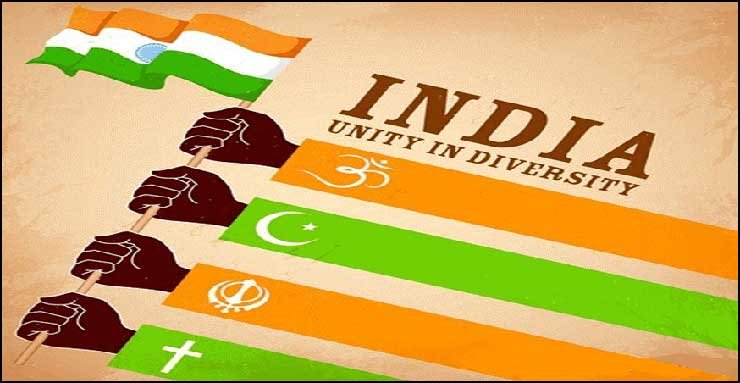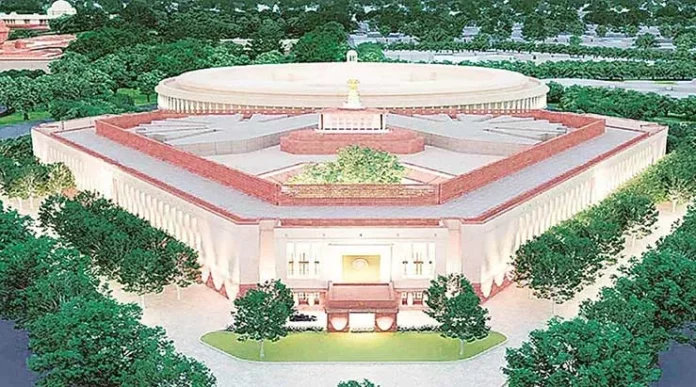In recent times, we have been hearing a lot about how civil society is being manipulated as a new frontier for the so-called grey zone or hybrid warfare. The issue has far-reaching ramifications as civil society is all-pervasive and could make a definite impact on the shaping of ideological opinions and aspects that affect nation-building and security. As Sadhguru rightly says, “The Nation is not the land – it is the people. In transforming the people, we shall have a great Nation.”
What is Civil Society?
In order to fully understand the issue, we need to be absolutely clear about how we define civil society in our context. To my mind, civil society is basically the amalgamation of voluntary collective actions around shared interests, purposes and values. It is basically a network of groups, communities and ties that bind people together. The ecosystem of civil society will predominantly be community-based organisations, worker or labour unions, professional associations and non-governmental organisations.
In democracies, civil society plays a monumental role in shaping the interests of people who do not have the courage to express their opinion in a free and bold manner. These people get the opportunity to have their voice heard on issues about lack of governance or matters that affect them in general. Therefore, civil society becomes a powerful tool that could easily be manipulated to serve the vested interests of individuals, religious groups or political parties to spread a particular message, which could be at variance with our overall national interests.
Impact of Civil Society
We have seen how civil society has affected public opinion. The recent examples of farmer agitation and the Shaheen Bagh episode are testimony to the fact that issues like these could take an ugly turn and cause a nationwide response, and disruption, thereby making the government task extremely difficult to ensure the situation does not escalate beyond control. Therefore, if NSA Ajit Doval has stirred a debate on civil society as a new frontier of war or fourth-generation warfare, it would need a clear understanding of this situation before coming to any such conclusion. In any case, the police being mandated to take the responsibility to protect people from being subverted, divided and manipulated, would not suffice as a recommended mechanism to curb such a spread.
It would be premature right now to equate a civil society in the same category as terror groups and insurgents and by any stretch of the imagination ask the police force to take them now. Solutions to sensitive issues do not need coercive measures but would require a ‘whole-nation approach’ to ensure that the civil society does not take the shape of the much-touted new generation of warfare.
Social Media – a Potent Force
It is here comes the role of social media as influencers that play an extremely pivotal role in shaping up civil society. In several instances, it has been observed that there is a definitive link between online barbs and offline violence and the spread of hate. We have often seen the potential abuse of platforms such as Facebook (now Meta), Twitter, Instagram and so on to spread hate messages because the ability to proliferate on such platforms is extremely easy and it just takes less than ten seconds to send a message and make it viral.
Understanding Civil Society Better
A report prepared by the Intelligence Bureau a few years ago brought forth some interesting facts. It said that while caste discrimination, human rights and water resource issues were earlier chosen by international organisations to discredit India in global forums, there has been a recent shift in the choice of issues with a view to encouraging ‘growth-retarding campaigns’, religious freedom and protection of livelihood. The report observes that NGOs have become central players in crafting agenda, coverage in print media and using scholar-turned activists, former diplomats and defence officials to spread specific propaganda. The report added that these activities are funded by foreign donors and serve as tools for the strategic foreign policy and psychological and information warfare interests of specific nations. China is a recent example.

Challenges Ahead
It would be a daunting task for any government to ensure that the threat of subversion of civil society does not transcend to the realms of another category of warfare. The constant validation of extreme speeches by political, cultural and regional groups only stokes the fire and encourages anti-national elements to exploit vulnerabilities to destabilise a nation.
It is therefore imperative that as a first step, the political leadership of the country must act responsibly keeping the national honour and pride foremost. It would not be out of place here to suggest a short formal military training for all newly elected MPs and MLAs.
The second aspect that needs attention is the role of media in propagating certain ideologies related to religion, caste or creed. The present IT and sedition laws would need a review with an aim to check perpetual violators. It needs to be understood that rationality and proportionality are the two most important elements for media self-regulation. We could take the leaf from nations such as Australia and Germany who have imposed fines and imprisonment on anyone violating norms for inciting passions using hate speeches. The United Kingdom has recently published a paper, ‘Online Harms’ that establishes norms for the conduct of media programmes and events.
The third important aspect is the curriculum we set up in our educational institutions in promoting the cultural heritage of our country as well as the inculcation of moral and ethical values. Only if we nurture our children well, we expect them to grow up as responsible citizens. The country today needs to invest in its youth as this is where the future lies. The National Cadet Corps could serve as an important platform to nurture discipline and nation-building.
Conclusion
The answer, therefore, lies in a ‘whole of nation’ approach wherein the political leadership, media, educational institutions and the necessary legal and regulatory mechanisms play an important role in moulding the behaviour and opinion of civil society towards a progressive mindset leading to a more harmonious environment towards ‘nation building’. Unless this happens, we would be waiting for a ticking time bomb to explode and no amount of fire-fighting could then remedy the situation.
-The writer is a former MGAOC Central Command. He has served in various important assignments in the Indian Army in Jammu and Kashmir and the North-East. He covers defence issues on various national TV channels. His recent book, “Breaking the Chinese Myth”, has been a best-seller on Amazon. Views expressed are personal and do not necessarily reflect the views of Raksha Anirveda





